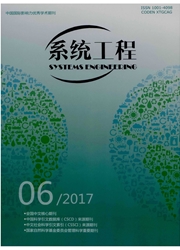

 中文摘要:
中文摘要:
在界定文化冲突及其类型、合资企业绩效和关系资本及其测度指标的基础上,建立国家文化冲突、合资企业绩效和关系资本之间关系的理论模型,并提出相关研究假设,然后,对40多家中外合资企业中有经验的278名管理人员进行问卷调查,利用结构方程模型,对数据进行信度和效度分析。在此基础上,利用二次回归分析法对研究假设进行了实证检验,数据结果表明,权力距离、集体主义/个人主义和男性度/女性度维度上的冲突水平与合资企业绩效呈倒“U”型关系;不确定性回避和长期/短期导向维度上的冲突水平与绩效负相关。此外,实证研究证明,关系资本能有效缓解文化冲突对绩效的负面影响。这些研究发现有助于揭示中外合资企业跨文化冲突与绩效之间的动态关系,为中外合资企业文化冲突管理提供有益启示。
 英文摘要:
英文摘要:
On the basis of defining cultural conflict and its category, joint venture performance and relational capital and their respective indexes as well, this paper first establishes a theoretical relation model of national cultural conflict, relational capital and joint venture performance, and then puts forward related hypothesis. In order to test these hypothesis empirically, data were gathered through a questionnaire survey among 279 managers in more than 40 selected Sino-foreign joint ventures in China. Then the reliability and validity of the data are analyzed through the Structural Equation Model and the hypotheses are tested by Quadratic regression analysis method. Quadratic regression results show that there is an inverted U-shaped relationship between conflicts along the dimensions of power distance, individualism/collectivism and masculinity/femininity and Sino-foreign joint venture performance, that conflicts along the dimensions of uncertainty avoidance and long-term/short-term orientation negatively correlate with joint venture performance, and that relational capital can effectively reduce the negative effects of national cultural conflicts on performance. These findings contribute to disclosing the dynamic relationship between cultural conflicts and joint venture performance and provide useful inspiration for cross-cuhural conflict management in Sino-foreign joint ventures.
 同期刊论文项目
同期刊论文项目
 同项目期刊论文
同项目期刊论文
 Fuzzy multi-criteria decision-making approach with incomplete information based on evidential reason
Fuzzy multi-criteria decision-making approach with incomplete information based on evidential reason Determining Socio-Psychological Drivers for Rural Household Recycling Behavior in Developing Countri
Determining Socio-Psychological Drivers for Rural Household Recycling Behavior in Developing Countri A new optimal portfolio selection strategy based on a quadratic form mean-variance model with transa
A new optimal portfolio selection strategy based on a quadratic form mean-variance model with transa The research of return policy in supply chain with a risk-averse retailer and a risk-averse supplier
The research of return policy in supply chain with a risk-averse retailer and a risk-averse supplier Dynamic services selection algorithm in Web services composition supporting cross-enterprises collab
Dynamic services selection algorithm in Web services composition supporting cross-enterprises collab 期刊信息
期刊信息
